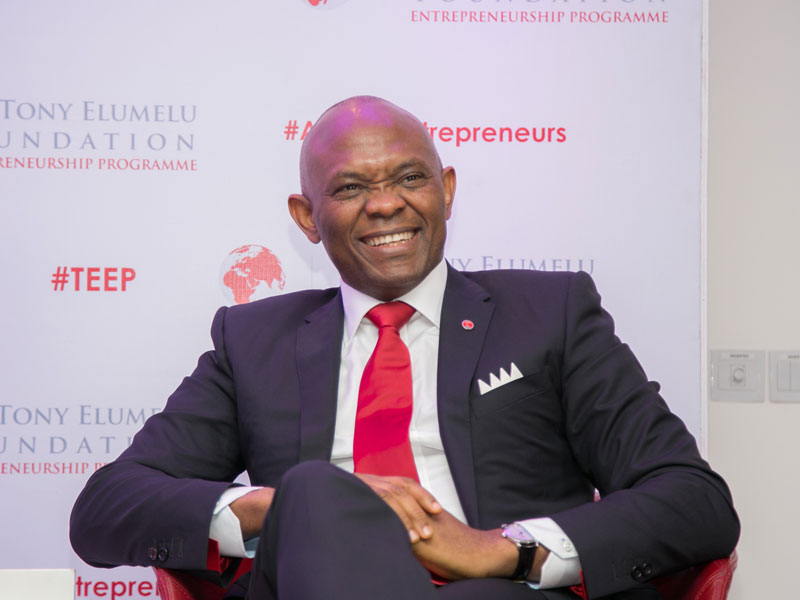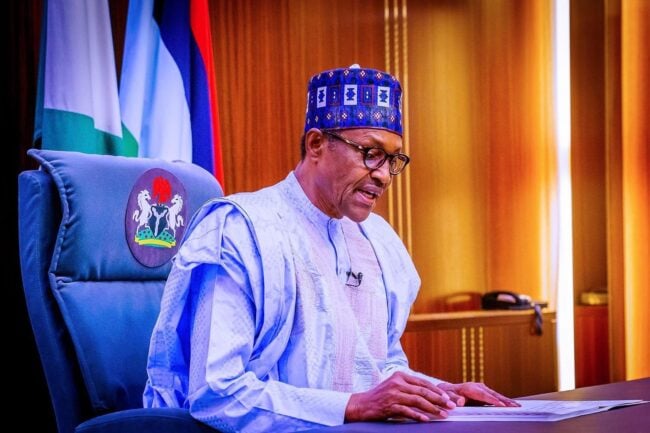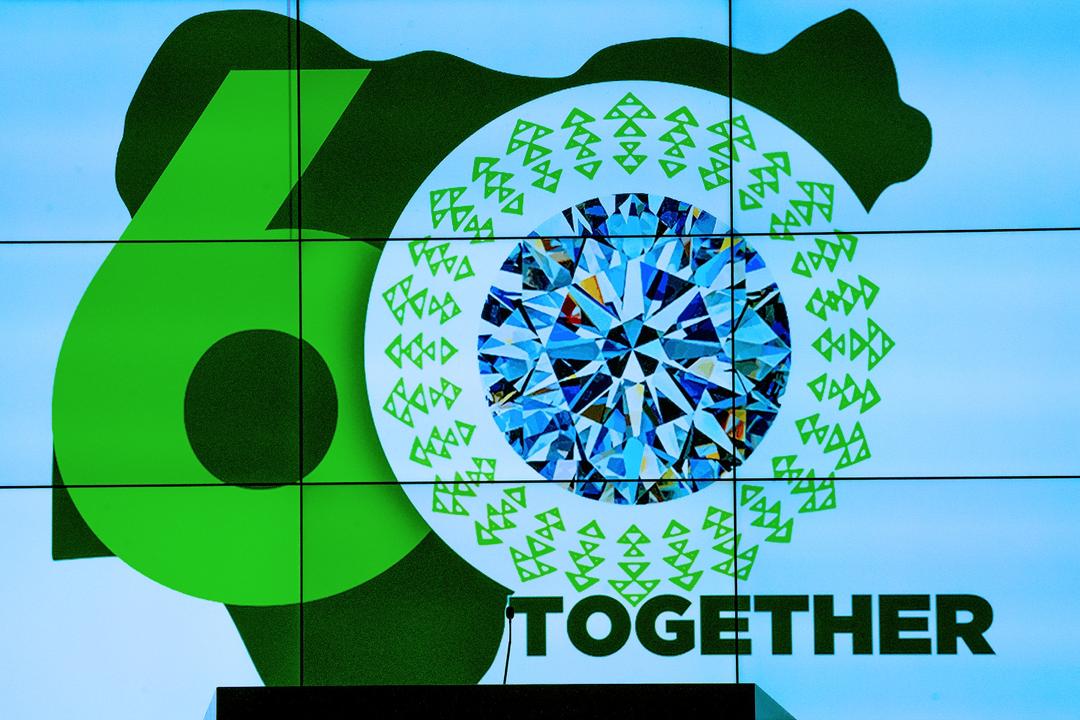In a world full of 7.8 billion people with diverse demographics, making a list of 100 most influential people is extraordinary.
Time Magazine has released its list of the 100 Most Influential People of 2020 and Nigeria’s billionaire banker and philanthropist, Tony Elumelu, who has become a household name due to his impact in pushing the shadows back on Africa, is on the list.
In particular, the category of influence for which Nigeria’s billionaire banker and philanthropist, Tony Elumelu, is defined by Time Magazine makes a big difference. He’s described as a “titan”— one that is gigantic in size or power.
Every year, everyone, from citizens to celebrities to elected officials, loves to make Time’s list of 100 Most Influential People for their achievements, but the odds favors significant achievements. In one breadth, Nigeria is lucky to have Elumelu. His footprints across the country with extended hands to the rest of Africa makes Elumelu’s outsized greatness a cynosure of all eyes.
Advertisement
But beyond business and benevolence, his path with powerful world leaders either present or past like U.S presidents, congressmen, and senators, makes Elumelu an asset for high profile diplomacy. Of course, this political influence with world leaders is one opportunity for African leaders to have strong engagement with the west if harnessed.
In recent history, Elumelu’s global influence outpaced that of any of his countrymen with equal ambition. In the past, Antonio Deinde Fernandez, a billionaire businessman with diplomatic engagement, who died in 2015, might have walked the same path as Elumelu, regarding diplomatic engagement.
I’m a fan of Elumelu for the same reason he makes the list of 100 global influencers. He’s an example for countries and organizations looking for a turnaround leader.
Advertisement
At work, Elumelu puts in the hour, so his employees at Heirs Holdings, know the rule of the game—diligence. Africa’s richest man and Nigerian billionaire, Aliko Dangote, wrote a piece on Elumelu, for Time’s Most Influential People issue.
“A mere handshake says a lot about Tony Elumelu. His gritty grip underlines his charming, tenacious personality: a man who hardly backs down from any challenge,” Dangote writes.
“After deepening the financial market in Africa, he has found an equally important niche: giving a voice of hope to millions of youths across Africa.”
The photo of Elumelu in the current edition of Time Magazine shows that grit—an headshot with focused eyes.
Advertisement
Elumelu is not new to this kind of honour, in 2012, he was named by Forbes Magazine as one of “Africa’s 20 Most Powerful People” and one of New African Magazine’s “100 Most Influential People in Africa” in 2011.
To know why he’s winning, Elumelu’s entry into the business world offers some insights. “I mentioned that I started my career selling photocopy machines. I learned something key from this and that is that you must know your product in order to be able to sell it,” he once shared at a business summit.
“We used to take the machines apart and put them back together and so we knew them inside out and of course that translated into our sales success. This applies to every job, you must be knowledgeable about your product so you can sell it properly. No knowledge gained is lost.”
For decades, Elumelu has rolled up his sleeves to turn the sod in Africa. Starting from his native country, Nigeria, he built big businesses in an aggressive way, creating employment and bolstering government revenue in multiple countries. Tall, tactical, affable, and energetic, it is clear that Elumelu was born to be chairman of chief executive officers.
Advertisement
With his hands in many big businesses and as a poster boy for the banking sector in Africa, it can be explained why Elumelu is winning. In short, Elumelu’s fingerprint is everywhere from agriculture, oil and gas, and banking to hospitality.
In the global race for innovation, Elumelu, unlike others in his ilk on the continent, knows that innovation-based economy is what will make Africa fulfil its potential, so he’s doing everything to assemble innovative minds for that change.
Advertisement
More seriously, governments’ concentration on the wage economy has not changed the tradition of labour rift on the continent.
At best, the idea by governments in Africa has been humpty-dumpty. That is where the headache lies.
Advertisement
It is simply good-for-nothing. In most cases, programs to reduce youth unemployment are implemented poorly and a huge sum of money in governments’ budget to turn the tide disappears every year.
Taken together, innovation is critical to the creation of high-quality, high-wage, sustainable jobs and economic growth, which, in turn, support the rapid progress of any nation.
Advertisement
This transition is what has been the preoccupation of Elumelu in recent years and that’s why his model for the development of Africa is receiving the attention.
Assuredly, the billionaire’s 100-meter dash nowadays has been about how to make Africa great in the real sense of the word beyond its leaders’ rhetoric.
After releasing $100 million from his fortune to provide seed grants to 1000 proto-entrepreneurs every year, Elumelu has been making endowments to programs that can help realise his dream for Africa.
No measure is perfect, but the strength of Elumelu’s approach provides insight into some fascinating questions. What kind of youth unemployment program is desirable for Africa, a continent where the word “potential” has almost become a customized word?
On the global table for inventions, Africans working on the continent are mentioned in ridicule, because the products of their inventions are not innovative enough to get off the ground or compete favourably.
Ultimately, innovation-based economy is what Africa needs to move from its “potential” position to producer level and that’s what I think Elumelu has been spending his time and fortune doing in recent years. Elumelu is putting his money where his mouth is and his interest in seeing the Africa rising narrative beyond the statistics is what I think remains the force behind his extraordinary quest for entrepreneurial skills in Africa.
At a time, every investor is scared about the world economy, Elumelu is motivated with encouraging words to those who want to invest in Africa.
“Today there’s more market stability than ever before and there’s a willingness and realization by African leaders that capital will come to where it’s welcome,” he told TIME.
“So they’re trying to make an enabling environment in their markets and in their countries to attract foreign investments.”
With a made-in-Nigeria story that is motivating for any young entrepreneur, Elumelu, who became the youngest bank CEO in Nigeria’s history at the age of 34, is undoubtedly creating a shift in mindset— economically and politically.
As someone who likes to understand the motives behind every story, I’m not fascinated by many “how to make it” stories told by businessmen, but the story of Elumelu cut through my heart.
For his benevolence, Elumelu has a strong outlook in Africa. For example, In August of 2017, as Sierra Leone struggled with human tragedy and economic woes that resulted from a massive landslide that killed more than 800 people in its capital, Freetown, Elumelu stepped forward, pledging $500,000 of his fortune to support a national emergency and to improve the city’s fortune.
In March, he dispensed more money to help stem the tide of COVID-19 across Africa. Elumelu gave outlandishly $14 million from his fortune at a time people and nations are driven-apart by a contagion.
And since 2015, when he began to give grants from his $100 million set aside for small businesses to expand Africa economy, Africa’s economic growth through entrepreneurship has been on the upsurge.
A large chunk of that money is now in the hands of young entrepreneurs in at least 48 countries in Africa where contributions are being made to their economies.
Views expressed by contributors are strictly personal and not of TheCable.
Add a comment







